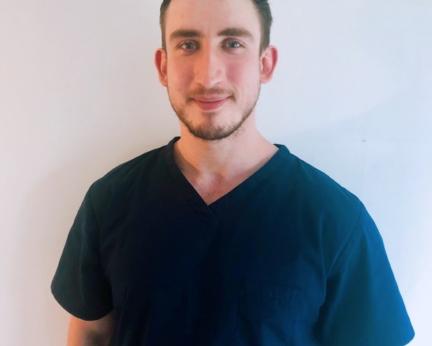I served as an engineering technician (weapon engineering) in the Royal Navy before leaving in 2011. When thinking about my career outside the Forces, my thoughts naturally focused on using my existing skills and perhaps working as an electrician; a career as an allied health professional (AHP) was far from my thoughts.
I’ve had ongoing back pain from an early age and had the personal experience of seeing an osteopath. I found it very interesting and that same osteopath suggested it as a career to me.
I had very few qualifications before joining the navy, but I did the Royal Navy literacy and numeracy equivalency tests (LANTERN) which enabled me to gain further training.
My university accepted a combination of the LANTERN test results, completion of a massage course and personal training course at a local college, and my life experience as a way of gaining access to the course.
I found I had to learn lots of new skills for studying and to adapt to university, but I loved it and eventually completed a Master’s in osteopathy and a postgraduate medical education qualification.





